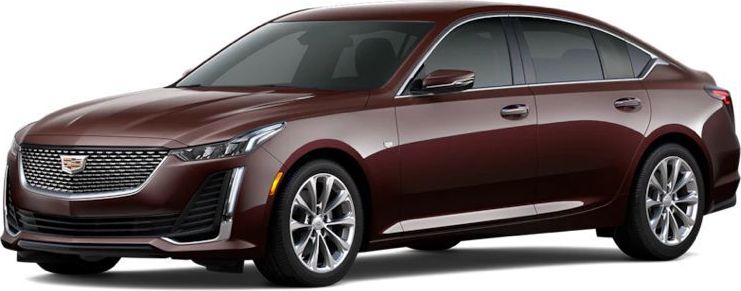Buying a car is a significant decision that involves careful planning and consideration. Whether you’re a first-time buyer or looking to upgrade your current vehicle, taking the right steps before making a purchase can ensure a smooth and satisfying experience. This guide outlines seven essential steps to help you navigate the car-buying process from the showroom to your driveway.

Set Your Budget
Determining how much you can afford is the first step in the car-buying journey. Begin by thoroughly evaluating your financial situation, taking into account your income, monthly expenses, such as rent or mortgage, utilities, groceries, and any existing debts like credit card balances or student loans. Decide whether you plan to purchase the car outright with cash, finance it through a loan from a bank or credit union, or lease it from a dealership. Each of these options has its pros and cons. If you opt for financing, consider important factors such as the loan term, which is the length of time you'll be making payments, and the interest rate, as they will significantly affect your monthly payments and the total cost of the vehicle over time. Setting a clear and realistic budget helps narrow down your options, preventing overspending and ensuring that your new car fits comfortably within your financial plans, leaving room for other expenses like insurance, maintenance, and unexpected repairs.
Research Vehicle Options
With your budget in mind, take the time to explore the various vehicles that align with your specific needs and preferences. Start by considering essential factors such as the size of the vehicle, its fuel efficiency, reliability, and the safety features it offers. These considerations are crucial in ensuring the vehicle suits your day-to-day activities and long-term expectations. Whether you decide on a Kia dealer or another brand entirely, conduct a thorough comparison of different models and trims to find the best fit for your lifestyle. In your decision-making process, reading reviews from automotive experts and current owners can provide valuable insights into the performance, reliability, and longevity of each vehicle. These reviews often highlight the pros and cons of particular models, helping you gauge how well they might serve your needs. Moreover, take into account the resale value of the vehicle and its anticipated maintenance costs, as these factors can significantly impact your long-term investment and financial planning.
Check Your Credit Score
Your credit score plays a vital role in determining the financing options available to you. A higher credit score can qualify you for lower interest rates, reducing the overall cost of your loan. Obtain a copy of your credit report from reputable sources and review it for any inaccuracies. If your credit score needs improvement, take steps to address any issues before applying for a loan. Understanding your credit standing allows you to negotiate better terms and secure more favorable financing, making the car-buying process smoother and more affordable.

Explore Financing Options
Once you have a clear picture of your budget and credit score, explore the various financing avenues available. You can obtain financing directly from the dealership, through a bank, or via credit unions. Each option has its own set of benefits and terms, so it's important to compare offers to find the best deal. Consider factors such as interest rates, loan terms, and any additional fees. Getting pre-approved for a loan can give you a better bargaining position when negotiating the price of the vehicle. Exploring different financing options ensures that you choose the one that best aligns with your financial situation and car-buying goals.
Take a Test Drive
A test drive is an essential step in the car-buying process, allowing you to experience the vehicle’s performance and comfort firsthand. During the test drive, pay attention to how the car handles, accelerates, and brakes. Evaluate the steering responsiveness and overall driving ease. Test the vehicle in different conditions, such as city streets and highways, to get a comprehensive feel for its capabilities. Assess the interior features, visibility, and ergonomics to ensure the car meets your expectations for daily use. A thorough test drive helps you determine if the vehicle is the right fit for your driving habits and preferences.
Inspect the Vehicle’s History
Before finalizing your purchase, especially if you’re considering a used car, inspect the vehicle’s history. Obtain a vehicle history report using the car’s VIN (Vehicle Identification Number) to check for any past accidents, title issues, or maintenance records. This information can reveal potential problems that may not be immediately apparent during a test drive. Consider having a trusted mechanic perform a thorough inspection to identify any underlying issues that could affect the car’s performance and longevity. Inspecting the vehicle’s history ensures that you’re making a sound investment and helps avoid unexpected expenses down the road.
Negotiate the Deal
Negotiating the price of the car is a critical step that can lead to significant savings. Start by researching the fair market value of the vehicle you’re interested in. Use resources like Kelley Blue Book or Edmunds to understand what others are paying for the same model. Be prepared to negotiate not just the purchase price, but also other aspects such as trade-in value, financing terms, and any additional fees. Stay firm on your budget and avoid being swayed by high-pressure sales tactics. Remember, it’s acceptable to walk away if the terms do not meet your expectations. Effective negotiation ensures that you get the best possible deal on your new car.
Buying a car involves multiple steps that require careful consideration and preparation. From setting a realistic budget and researching vehicle options to negotiating the best deal, each phase plays a crucial role in ensuring a successful purchase. By following these seven steps, you can navigate the car-buying process with confidence and make an informed decision that aligns with your financial situation and personal needs. Taking the time to thoroughly prepare before visiting the showroom will ultimately lead you to drive away in a vehicle that you are happy with and that serves you well for years to come.




